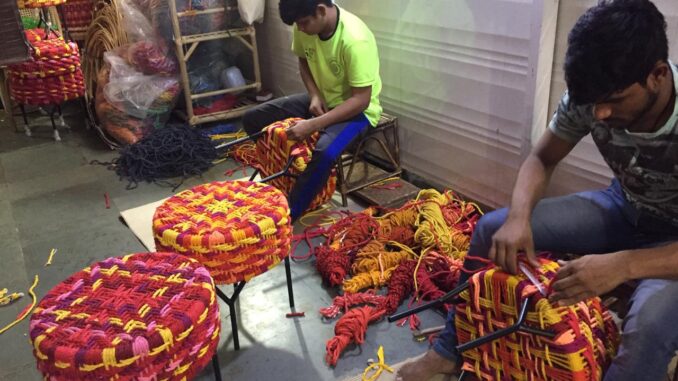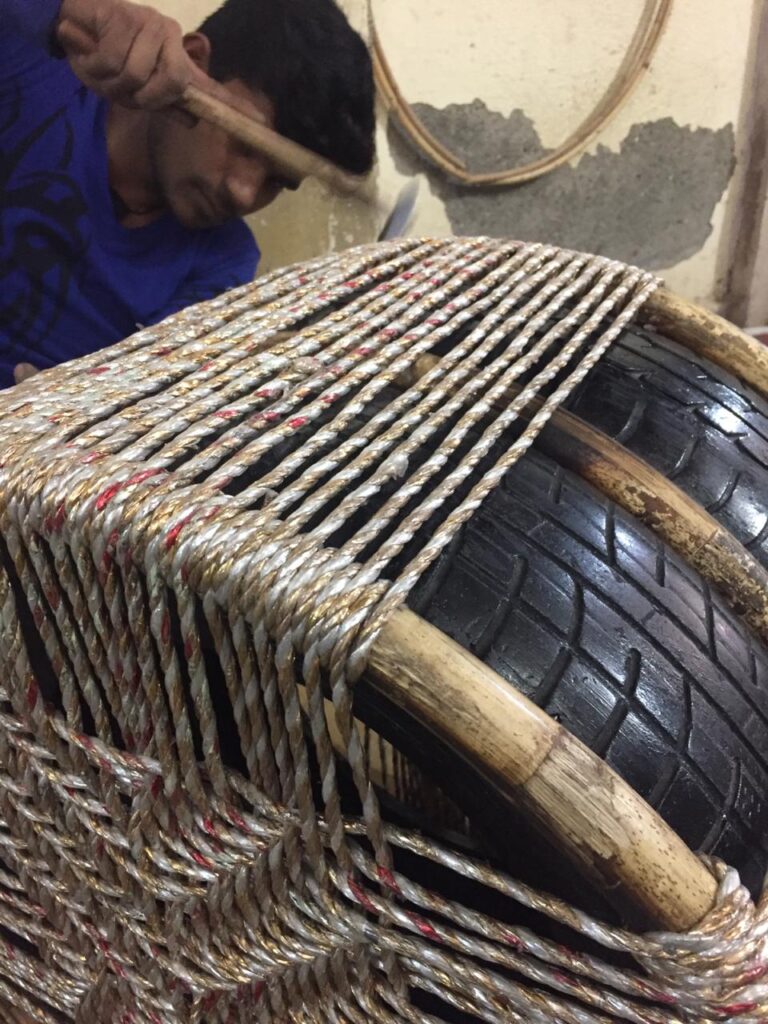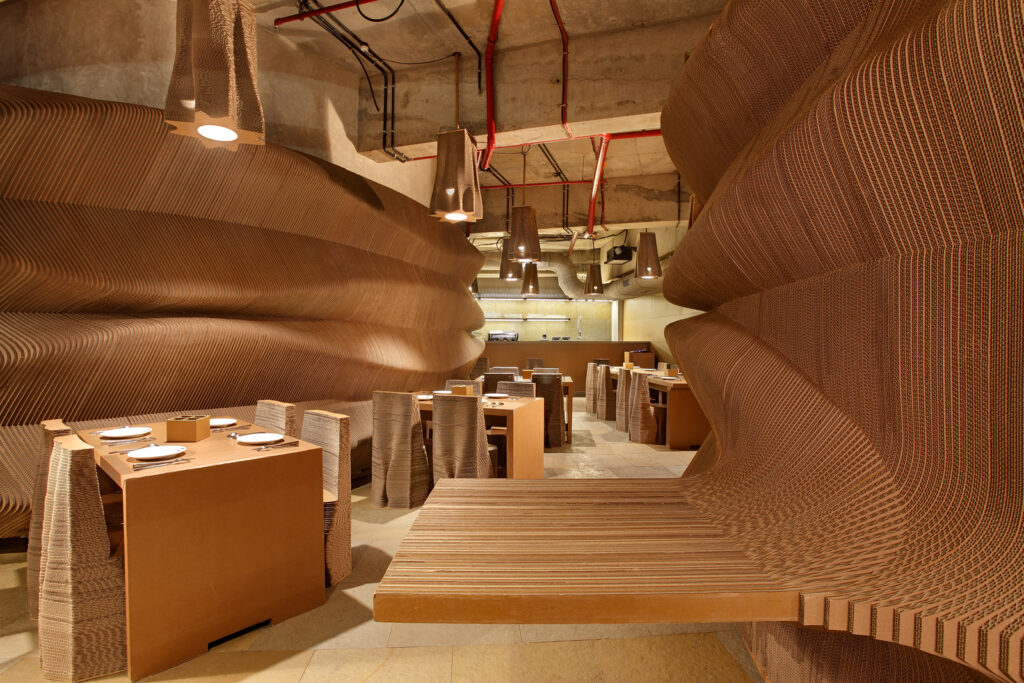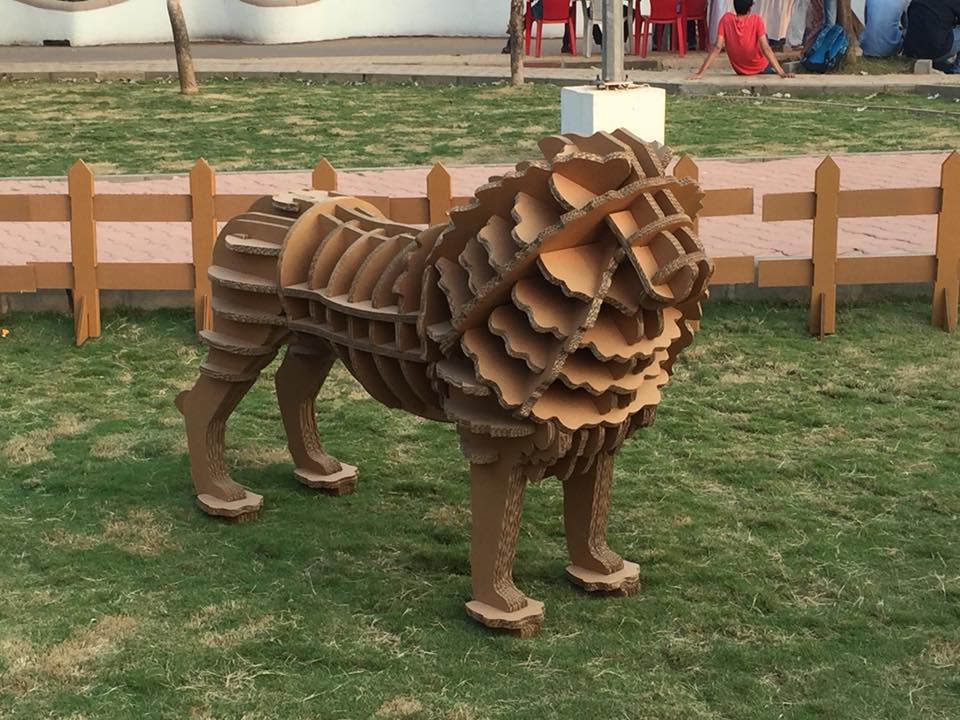
In recent years, India’s rapid growth as an economy and a rise in urban migration has increased the generation of municipal solid waste annually.
Currently, India produces 127,486 tons a day of municipal solid waste from household activities and other commercial and institutional activities, according to the Central Pollution Control Board (CPCB).
Since India is a developing country, we can utilize methods to develop sustainably. About 46 percent of India’s population comprises people aged between 15-35 years. This section of society is adopting sustainable ways of living.
And the good news is that a growing number of people in India don’t view sustainability as a facade, but they believe it’s a way of life. This sentiment has fueled an increase in demand for environment-friendly products.

“There is certainly more awareness, especially in the younger generation; one does come across more products made from waste,” said Anu Tandon Veira, founder of Retyrement Plan. The firm makes chairs, pouffes, charpais — a traditional woven bed used across South Asia — and floor cushions from waste rope and tire pieces.
The demand for sustainable products is revamping the business environment in the country. New businesses are emphasizing on sustainability as a key driver of innovation. Upcycling and recycling of waste are becoming widely popular in the furniture sector. These businesses are using cardboard, tires, and waste papers through innovative processes to make sustainable furniture.
“The demand is growing and better-executed products will certainly find buyers,” said Veira.
Making waste products reusable or using them as raw materials requires extensive upcycling and disparate processes to attain the desired quality and results. Upcycling is time-consuming and requires skills and knowledge. This makes the final product more expensive than its non-sustainable counterparts. But, at the same time, people taking up the responsibility of adopting a sustainable lifestyle are willing to pay a little extra for it.
“As the raw material is a by-product of waste, the time and effort in making it usable increases and it is labour-intensive,” says Veira. “Our furniture celebrates design, color, and the skill of our weavers. Therefore, the pieces always find an appreciative, discerning buyer who values these qualities and is willing to pay for it.”

A report by the World Scientific News showed waste paper had the largest share in non-compostable municipal solid waste in the Indian cities.
However, a clutch of firms are experimenting with waste paper to create stylish furniture and decor items.
“The paper industry is one of the top five polluting industries,” said Spriha Chokhani, founder, The Pulp Factory. “Hence, we work with the post-consumer waste newspaper. It is a growing market with a lot of possibilities.”
Chokhani said she has been doing research on paper waste over the last decade and has observed an increase in demand for sustainable products, especially in the last two years. Her firm uses paper pulp from discarded paper sourced from the local kabadiwallas – scrap dealers — as raw material.
“I see a demand, and, especially during the Covid-19 times, we have seen massive growth in the market for sustainable products,” she said.
Paper Shaper is another such venture that makes furniture and household fixtures from corrugated board.
“I can see awareness in people. The younger generations, who are open to trying new things and have a sense of social responsibility towards the environment, are more inclined towards our sustainable furniture and products,” said Haresh Mehta, founder, Paper Shaper.

Mehta said it took a long time for them to convince people to use cardboard furniture and other products for the home and office. His firm has also provided furniture and decor items to a restaurant in Mumbai.
“We have worked on a full-fledged restaurant and bar in Mumbai, which is entirely made of cardboard. It is the talk of the town,” Mehta said.
“Entrepreneurs are stepping up with innovative ideas to reverse the effect of land filling and toxins in the waste,” said Lavanya Ravishankar, partner, Ubyld, a company that uses waste materials and upcycles it into furniture. “We work with less profit, so our upcycled products are solid, long-lasting, and reach all our customers,” said Ravishankar. “We keep our operational costs and margins low to make our products affordable.”
The procurement of raw materials and the manufacturing of upcycled furniture are separate processes, as all of them use different methods of recycling or upcycling. The companies use customized machinery, a skilled workforce, specific treatment processes to achieve the desired quality of workable material. At the same time, they also make sure that none of the manufacturing processes add more toxins or harmful products to the environment.
(Edited by Gaurab Dasgupta and Uttaran Das Gupta)
The post Upcycled Furniture Gains Popularity in India appeared first on Zenger News.
